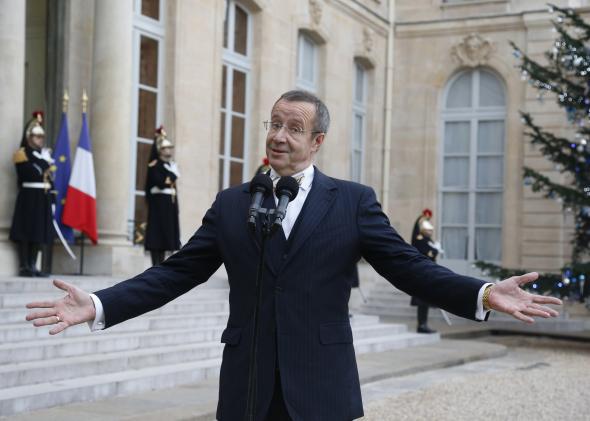On Thursday, the Estonian parliament approved the Cohabitation Act, which “recognizes civil unions regardless of gender” and allows same-sex couples “to adopt the children of either partner but does not expressly grant them the right to adopt other children.” Twenty-three of the 101 lawmakers were absent or abstained, but Estonian President Toomas Ilves later announced on Twitter that he had signed the bill. The Cohabitation Act, now known as the Civil Partnership Law, will go into effect in 2016.
Estonia is the first country of the former Soviet Union to recognize same-sex partners—though, as Ilves also noted on Twitter, the label of “first former Soviet republic” downplays the fact that Estonia has been independent for almost 25 years. The law is remarkable not because of the country’s past, but because of the reality of its political present: Neighboring Russia has been using anti-LGBTQ propaganda to stir up anti-Western, anti-EU sentiment in Eastern Europe. In some cases, that worked to turn people against the West. In others, it has worked to turn people against LGBTQ rights: Georgia, for example, passed an EU-friendly anti-discrimination law in May, but only after the government made the law less enforceable and offered to change the constitution to state that marriage is between a man and a woman.
But Russian pressure did not work in Estonia, despite Kremlin lobbying. (Judging from that lobbying, there are those in Moscow who would like us to continue to think of Estonia as a “former Soviet” state.)
Almost a quarter of a century ago, Estonia broke away from the Soviet Union. Today, Estonia proved again that it is indeed a free country—one in which same-sex partners will, come 2016, be freely recognized.
